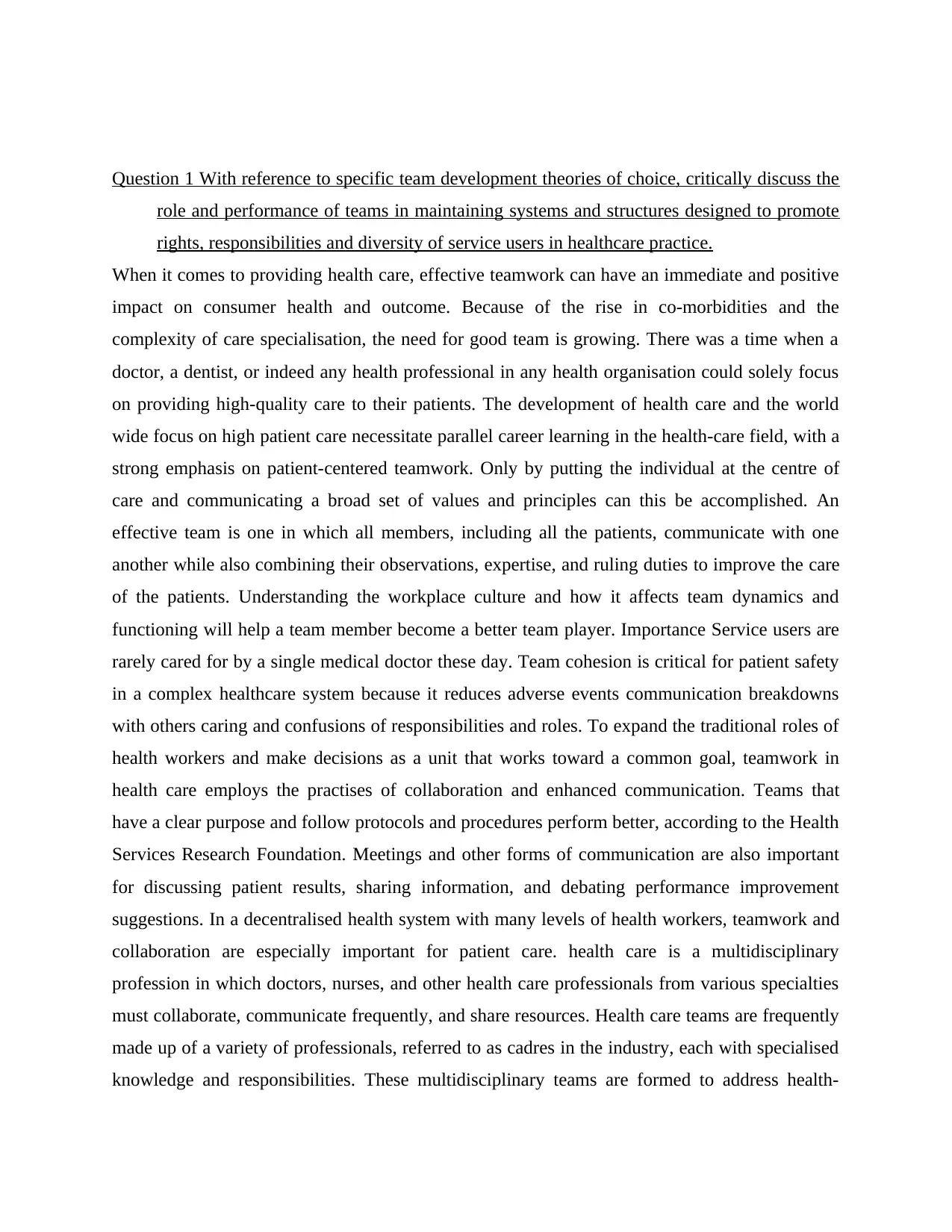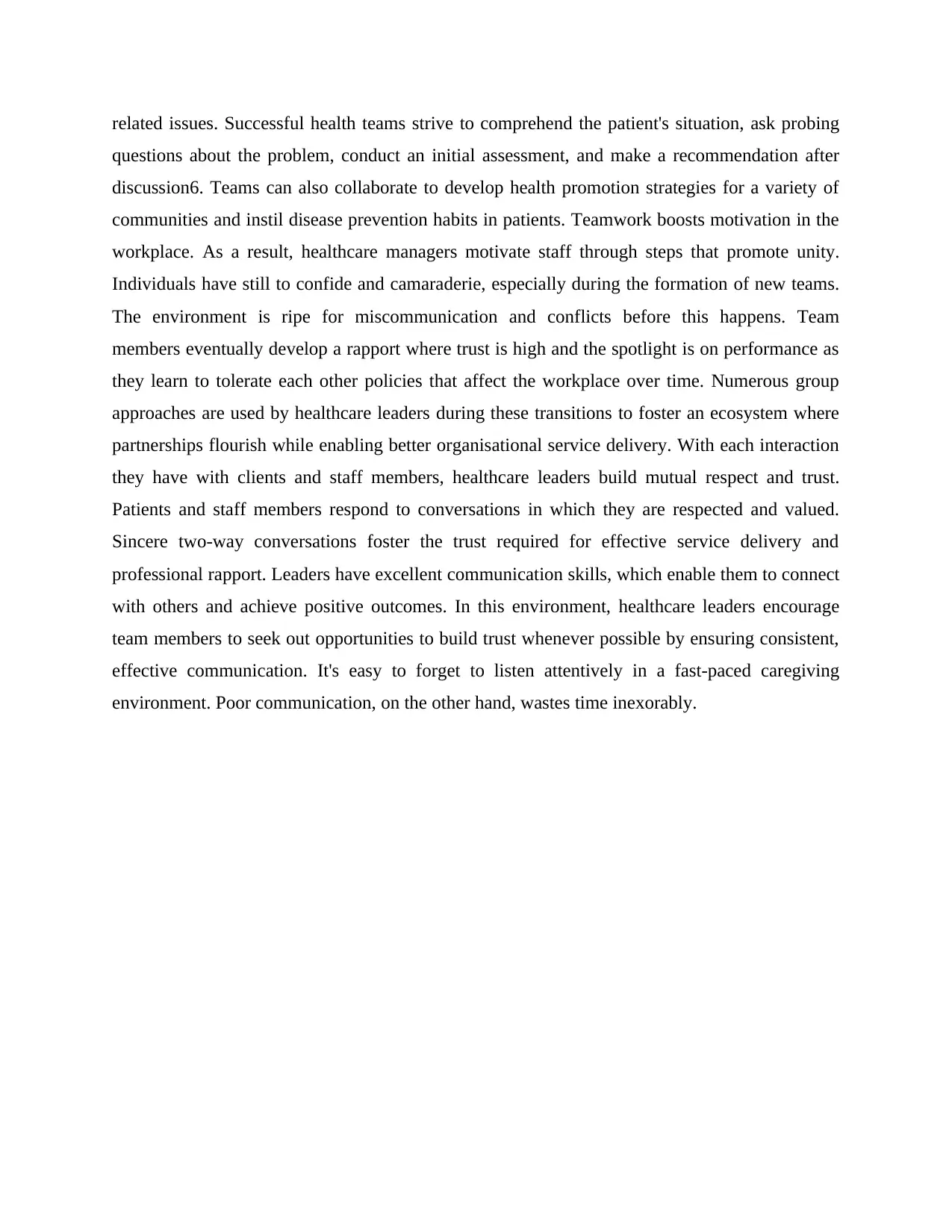BUS6004 Quality Management: Teams, Rights, and Responsibilities
VerifiedAdded on 2023/06/12
|5
|725
|377
Essay
AI Summary
This essay critically discusses the role and performance of teams in maintaining systems and structures designed to promote the rights, responsibilities, and diversity of service users in healthcare practice, referencing team development theories. It highlights the importance of effective teamwork in improving patient health outcomes, especially with the increasing complexity of care. The essay emphasizes the need for patient-centered teamwork, where all members communicate and combine expertise to enhance patient care. It also touches on the significance of team cohesion for patient safety, the use of collaboration and communication to expand health workers' roles, and how teamwork boosts motivation in the workplace. Furthermore, it explores how healthcare leaders foster an environment where partnerships flourish, enabling better organizational service delivery through mutual respect, trust, and effective communication. The essay concludes by stressing the importance of listening attentively in the caregiving environment to avoid poor communication and wasted time.
1 out of 5












![[object Object]](/_next/static/media/star-bottom.7253800d.svg)